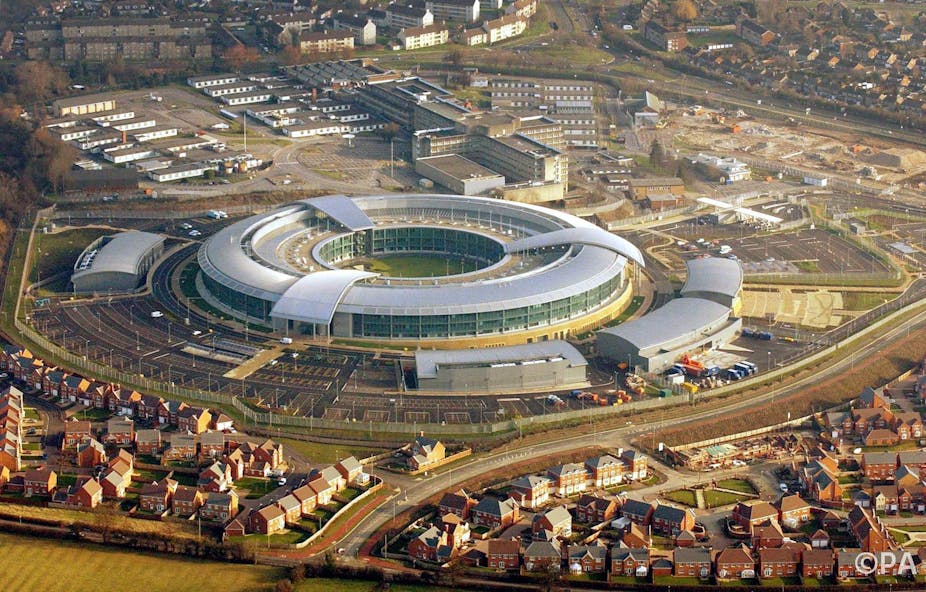Two years after Edward Snowden’s allegations concerning mass surveillance, the Investigatory Powers Tribunal, the UK intelligence agencies complaints tribunal, has ruled that the manner in which the UK’s GCHQ shared intelligence from the US National Security Agency was unlawful.
In a brief ruling that follows a lengthy and more complex one in December, the tribunal at the same time announced its view that previous legal defects have been corrected, and that it is now satisfied that GCHQ is acting lawfully. At least, that is what you might think the IPT has decided. But in the peculiar point at which the law, intelligence and secrecy mix, things are not always what they seem.
In real life, wronged spouses, the general public, and judges and juries for that matter are usually wary of the “I did wrong but now I have changed” defence sometimes offered by those caught red-handed. But in this instance the UK government continues stubbornly to maintain its innocence – it is the tribunal itself that has offered that explanation on their behalf.
Undoubtedly, the IPT’s finding helps the security and intelligence agencies save face. Officials were quick to claim the tribunal’s finding of illegality was historical, and also a technicality – since it related only to disclosure about the details of data-sharing arrangements rather than finding that the practices breached privacy.
There are a number of problems here, both with the argument and in establishing the facts.
Historical matters?
The first claim is that these illegal matters are in the past. Well, what do we mean by “the past”? The tribunal’s ruling is inconveniently precise – before December 2014. The past may be another country, but on any reckoning GCHQ was apparently acting in breach of the law until approximately eight weeks ago. This was long after ministers offered repeated denials of impropriety in parliament, and after it received a clean bill of health from the Parliamentary Intelligence and Security Committee.
Second, for reasons to do with the strange Neither Confirm Nor Deny world of security and intelligence accountability, the case brought by Privacy International, Liberty and others was conducted on an agreed assumed set of facts relating to the allegations.
In other words, the statements and arguments made in the ruling are based on circumstances and cases assumed to be hypothetical. This device made it possible for the tribunal to conduct five days of open hearings and to produce a lengthy and legally complex open judgement in December 2014 on how the law would apply to these hypothetical, unconfirmed, facts.
The tribunal’s most recent judgment refers carefully to whether “the regime” governing communications is compliant with the law. But the government’s disclosures in the case flit between what happens in practice and the hypothetical case so much that it’s difficult to say definitively from the tribunal’s conclusions that GCHQ fully complies with the law.
Only a technicality?
What about the claim the breach was merely a technical one? The issue of disclosure about data-sharing practices and privacy, and the practices themselves, are closely intertwined in law. Before data sharing or surveillance can be permitted under Article 8 of the European Convention on Human Rights (the right to respect for private life) they must be “in accordance with law”, and the law in question must be publicly accessible.
In this case the Intelligence Services Act 1994 refers to safeguards in “arrangements” by the agencies. The tribunal found that the previously unpublished arrangements were insufficiently transparent and therefore breached Article 8. In other words, there was a breach of privacy because of the lack of transparency, rather than there being no breach of privacy per se.
What is certainly true is that we have no reason to believe that anything has changed at GCHQ. In fact the more striking aspect of all this was that the tribunal took documents that the government itself produced during the hearing as providing the necessary degree of disclosure and assurance for the future.
Matters do not end here. The question will now go to the European Court of Human Rights where both the “arrangements” and the Investigatory Powers Tribunal’s own process are likely to be challenged.

